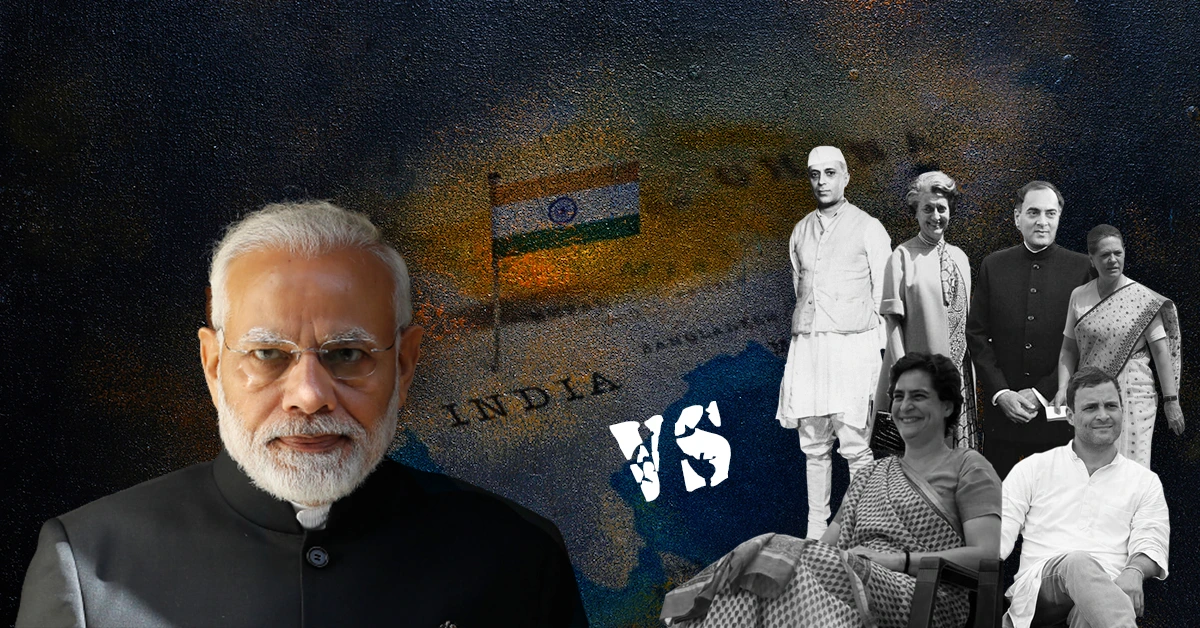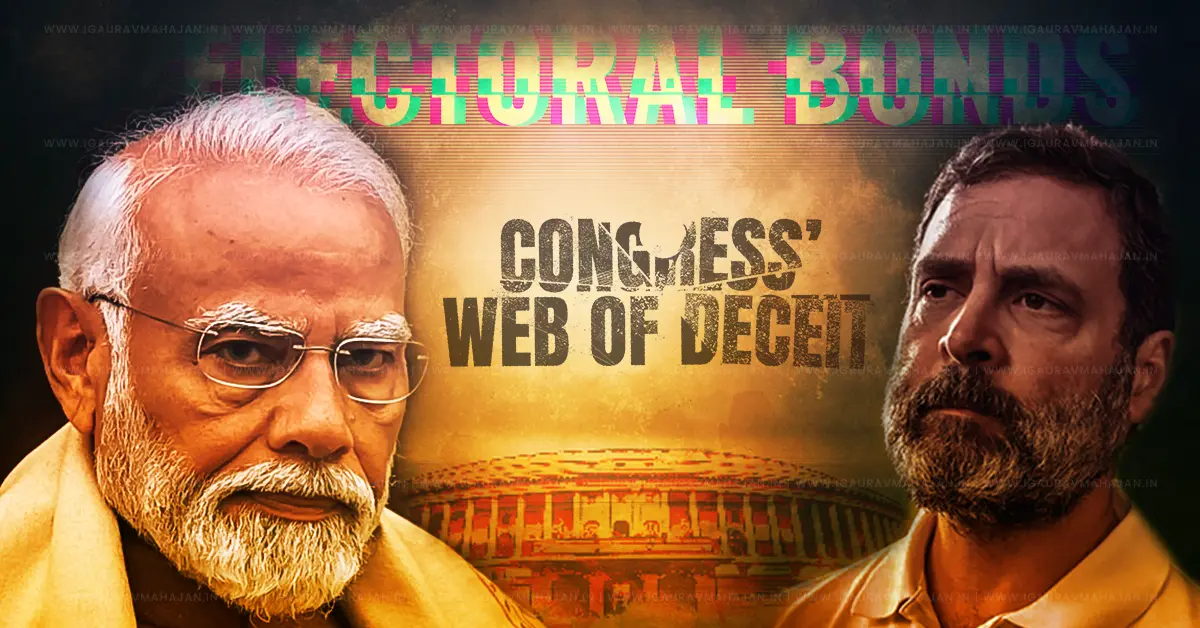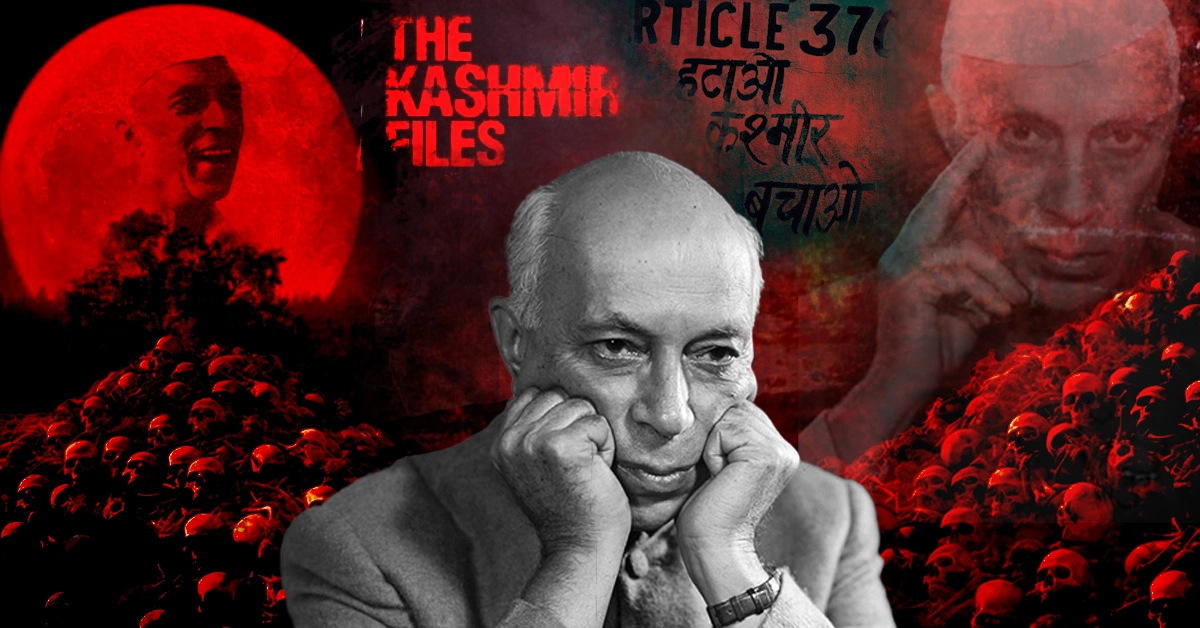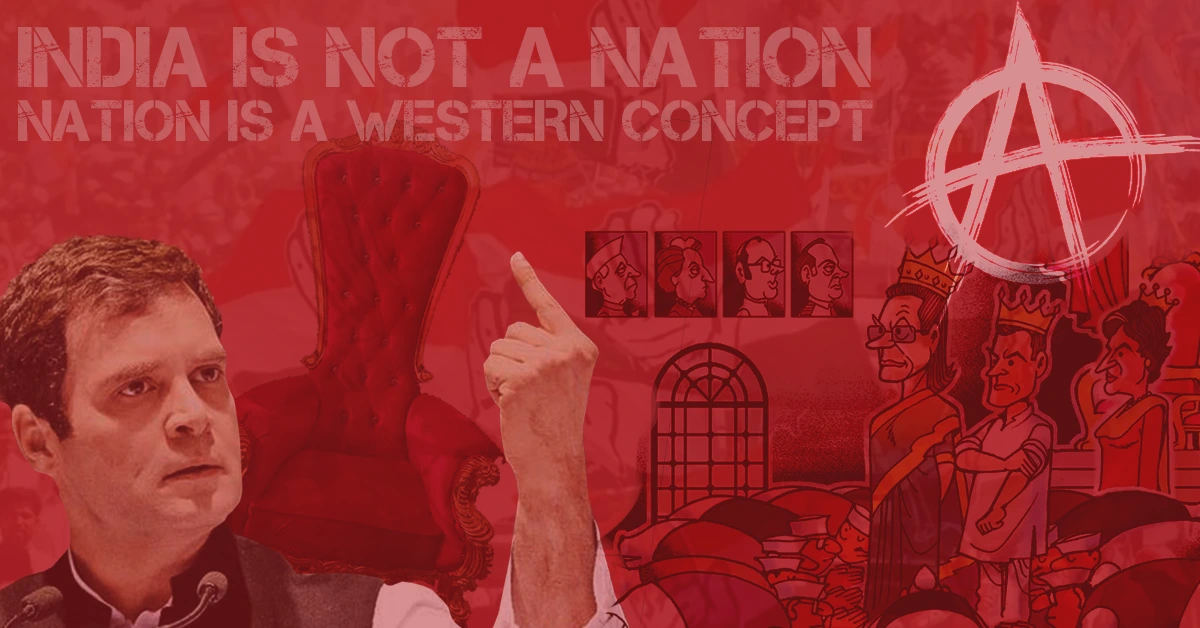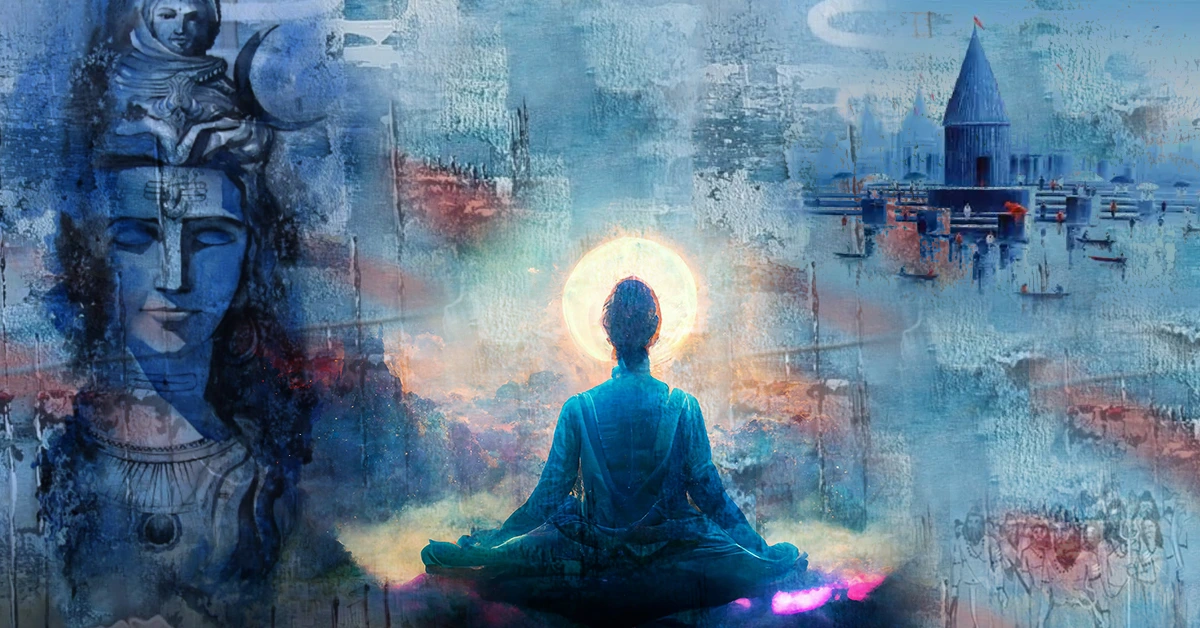The Gandhi family always places its partisan interest on a higher pedestal than national interest, and Narendra Modi’s biggest political contribution is to end this dynastic rule. India must unite again and stand firmly behind Narendra Modi to defeat this multi-cornered assault on India’s narrative as a rising power.
- June 27, 2023
- 12 Mins Read
A Nation in Chains - Exploring the Reign of Terror Unleashed by Indira Gandhi led Congress during Emergency
Unveiling the grim reality of Indira Gandhi’s Emergency rule, this gripping account exposes the rampant abuse of power, censorship, and state-sponsored atrocities that plagued India. From the suppression of dissent to the curtailment of civil liberties, explore the far-reaching consequences of this dark chapter in the nation’s history.
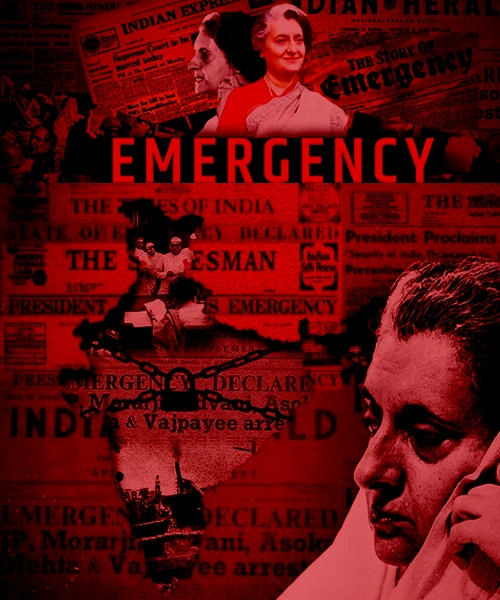
click play to listen to the article
यः सर्वदा द्वेषं धारयति, स एकः मधुरहीनो मधुकरः विचलति।
The one who harbors constant negativity goes astray like a bee without honey
During the Emergency, Indira Gandhi, under the draconian Maintenance of Internal Security Act (MISA), nearly 30,000 political workers, particularly those affiliated with the Jana Sangh or the Rashtriya Swayamsevak Sangh (RSS), were apprehended without trial. 87 RSS Swayamsevaks lost their lives fighting Indira Gandhi’s Emergency.
Introduction: Indira Gandhi had an uncomfortable relationship with democracy. Throughout her ascent to the role of Congress president and subsequently as prime minister, Gandhi consistently sought to attain complete control over her party, government and consequently the nation. The imposition of the Emergency was only an obvious extension to suppress democratic voices and strengthen her authoritarian hold for absolute power. Indira Gandhi’s indifference towards India’s Constitution was further revealed as she chose to draft a letter on a plain white sheet, rather than using the official letterhead, to urge the President to declare an Emergency on 25 June 1975. This flagrant display of disregard illustrated her blatant disdain for constitutional principles and her determination to consolidate absolute power, regardless of established norms or democratic values. The youth of our country must be made aware of the gravity of the Congress leadership’s actions, understanding the profound significance and implications they had on the fabric of our democracy.
The Declaration: On 25 June 1975, a dark day in India’s history, Indira Gandhi imposed the Emergency. India’s cherished democracy had been crushed in one fell swoop. In a single stroke, over 1,11,000 individuals, including political adversaries, activists, journalists, writers, and ordinary citizens who dared to express dissent, were subjected to arbitrary arrests and detentions. The long shadow of terror and fear spread everywhere. People were too scared to talk about politics at all.
Under the draconian Maintenance of Internal Security Act (MISA), nearly 30,000 political workers, particularly those affiliated with the Jana Sangh or the Rashtriya Swayamsevak Sangh (RSS), were apprehended without trial, allowing the government to effectively silence opposition and stifle dissenting voices. 87 RSS Swayamsevaks lost their lives fighting Indira Gandhi’s Emergency. The entire period witnessed widespread violations of due processes of law, plunging families into anguish and individuals into a state of uncertainty about their own fate. The Emergency era was characterized by oppressive state incarcerations, suppression of dissent, and a harsh crackdown on civil liberties. Disturbing reports of frequent human rights abuses and severe press censorship only added to the repressive atmosphere that prevailed during that time.
Horror and Brutality: During the Emergency, it was not only prominent political figures, but also thousands of grassroot workers across the nation who experienced the abuse of power orchestrated by Indira Gandhi. Among them was Vaikom Gopakumar from Kerala, a young man of just 25 years old at the time of his arrest. He endured brutal beatings at the hands of the police, resulting in lifelong medical conditions.
Troubling reports of torture and mistreatment surfaced from detention centers across the country during the period of the Emergency. Those who challenged the regime faced physical violence, sexual assault, and psychological torment. These acts of brutality aimed to instill fear and crush the spirit of resistance left an indelible mark on the lives of the unfortunate victims and devastated the lives and future of numerous fellow Indians.
In a chilling incident, Snehalata Reddy, a well-known Kannada actress and a close associate of George Fernandes, a fiery politician and staunch critic of Indira Gandhi’s autocratic methods, was subjected to nightly beatings to extract information about his whereabouts. Despite suffering from asthma, she was denied medical treatment, and tortured till her cries were heard by fellow inmate in the adjacent cell, Atal Bihari Vajpayee. Tragically, Snehalata Reddy passed away five days after her release from jail. Similarly, Lawrence Fernandes, George’s brother, was severely beaten and threatened with the rape of his elderly mother in his presence unless he revealed George’s location. As a result of the police brutality he endured, Lawrence lived the rest of his life with a permanent limp.
During this period, Sanjay Gandhi, Indira Gandhi’s son, exerted significant influence in her name and orchestrated a large-scale campaign of mass sterilizations, despite lacking any official government position. It is estimated that approximately 120 million people were forcibly sterilized between 1975 and 1977. This inhumane experiment primarily took place in the states of Uttar Pradesh, Bihar, Madhya Pradesh, Rajasthan, Haryana, Punjab, and Himachal Pradesh, which were infamously referred to as the “vasectomy belt” during that period. In Uttar Pradesh, the vasectomy camps initially performed 331 operations per day, but that number escalated to 1,578 per day and eventually reached a staggering 5,664 operations per day, exemplifying the complete disregard for individual freedom and bodily integrity. Sanjay Gandhi set ambitious targets for his pet project, with police commissioners being awarded gold medals for meeting these targets. Even government medical treatment in hospitals was denied until a sterilization certificate was presented. Congress governments put on hold promotions and payments to employees until they were sterilized or fulfilled their assigned quota of convincing others to undergo sterilization. People were even required to produce a sterilization certificate to renew their driving and sales tax licenses. The victims of this brutal campaign were often the poor, illiterate men, jail inmates and hospital patients, who were deceitfully or forcibly sterilized. Even bachelors and young married men were not spared. Protesters who resisted were met with deadly force from the police. To meet the targets, both men and women were forced to undergo surgeries under unhygienic conditions, leading to subsequent infections. Many eventually died from these infections.
In addition to the curtailment of civil liberties, there was a severe crackdown on trade unions during the Emergency. The government took measures to ban trade union activities and suppress workers’ strikes, while also imposing fixed wages without any provisions for bonuses. Those who dared to protest against these unjust policies faced harsh repression and punitive actions.
Janata Coffee House, a renowned establishment in Connaught Place, served as a gathering spot for many journalists, politicians, and lawyers who convened there regularly to engage in political discussions. Upon discovering that discussions against the Emergency were taking place, Sanjay Gandhi promptly bulldozed the coffee house one morning, effectively suppressing the voices of those who dared to express their opposition to the regime.
I pay homage to all those courageous people who resisted the Emergency and worked to strengthen our democratic spirit. The #DarkDaysOfEmergency remain an unforgettable period in our history, totally opposite to the values our Constitution celebrates - Prime Minister Narendra Modi (25 June 2023)
The Dictator: The administration was the first to succumb to the dictates of the ruler, and, in fact, became instruments of tyranny. Before them, there was no ethical consideration nor any spirit to save the public. They were so eager to stay in good books of the Congress that they competed with one another to prove readiness or loyalty to carry out illegal, capricious fiats.
Media censorship was extensively employed during the Emergency to stifle dissent. There were severe restrictions on publishing anything critical of the Indira Gandhi-led Congress government. Most media outlets complied instead of opposing these dictatorial measures, displaying a callous disregard for democratic principles. The media became more loyal than the censors. As Lal Krishna Advani famously remarked, “You were asked only to bend, but you crawled.”
Indira Gandhi changed laws and destroyed the institutions and the judiciary. She became law unto herself, concentrating all authority in her office, and did whatever she and her son fancied. They appointed compliant judges and transferred hostile judges. The suppression of judicial autonomy undermined the judiciary’s role as a guardian of constitutional rights resulting in the reversal or dilution of several significant judgments that had previously upheld the fundamental rights of citizens. The judiciary did not dare to pronounce a judgment which the government would not like.
The Aftermath: During this period, India’s reputation as a defender of democracy experienced a notable setback. The atmosphere of uncertainty resulting from the Emergency had adverse effects on foreign investment and economic growth. Foreign businesses and investors became wary of political stability and the government’s dedication to democratic principles, influencing foreign investments and trade partnerships. International media outlets portrayed the actions of the Indian government unfavorably, amplifying the negative image of India and influencing diplomatic relations, global cooperation, and economic connections.
Back in India, Emergency instilled a culture of flattery and sycophancy, epitomized by slogans like “Indira is India,” which inflicted lasting damage on the country’s democratic fabric. Discussion on values and fair methods was nonexistent, as Mrs. Gandhi went to any extent necessary to achieve her objectives, completely disregarding ethical considerations. What is even more distressing is that she eliminated morality from politics altogether. The nation was deeply shaken by these actions, but was forced into silence.
Complete subservience emerged as the sole and highly coveted requirement for pursuing a career within the Congress party. Individuals from a wide range of backgrounds, including bureaucrats, judges, industrialists, and politicians, willingly endorsed a loyalty pledge to faithfully serve Indira Gandhi. Under the leadership of Congress President DK Barooah, an amendment was introduced that outlined the responsibilities of Indian citizens towards Indira Gandhi’s government. Taking this flattery to another level, AR Antulay proposed a thorough reevaluation of constitutional provisions such as the five-yearly parliamentary elections. Engaging in a competition of sycophancy, Bansi Lal went even further by suggesting the alteration of provisions to appoint Indira Gandhi as the President of India for life.
Under the leadership of Congress President DK Barooah, an amendment was introduced that outlined the responsibilities of Indian citizens towards Indira Gandhi’s government. Taking this flattery to another level, AR Antulay proposed a thorough reevaluation of constitutional provisions such as the five-yearly parliamentary elections. Engaging in a competition of sycophancy, Bansi Lal went even further by suggesting the alteration of provisions to appoint Indira Gandhi as the President of India for life.
Congress Mukt Bharat: Presently, India stands as a vibrant democracy. However, it is of utmost importance that we maintain a vigilant and determined stance in our efforts to safeguard the precious freedoms and rights that were hard-earned through the sacrifices of those who valiantly resisted the Emergency and suffered brutal tortures by a ruthless ruler. It is essential to reflect upon the fact that the Gandhi dynasty, driven by arrogance, flagrantly disregarded the values enshrined in our Constitution.
In present times, the Congress avoids discussing the Emergency as it views any criticism directed towards Indira Gandhi’s autocratic rule during that era as a personal offense to the Gandhi family. This behavior also highlights the arrogance and insatiable desire for power exhibited by a specific family and its political organization. It serves as a stark reminder of the importance of preserving democratic values and the need to protect our rights. Let us learn from the past and remain vigilant to ensure Congress is never voted back to power.
Arvind Kejriwal can be seen making promises to the people, only to break them later. He had claimed to be a people’s leader and vowed to behave in a way that would benefit the people, but now appears to be doing the opposite. Kejriwal has also been seen giving advice and guidance to even the President of India, but now he himself seems to be behaving in a manner that is contrary to his own advice. These videos raise questions about Kejriwal’s credibility as a leader and his ability to keep his promises to the people.
Share this article:
Leave a Comment
Recommended For You
Rahul Gandhi believes it's his birthright to rule over India. He has a habit of making fabricated allegations beyond facts. Each of his narratives are coated with arrogance and ego and often undermine India's sovereignty. Now it’s for the people of the country to decide if the self-proclaimed monarch should →Read More →
Electoral Bonds represented a pivotal shift towards transparency in political financing, aiming to curb the influence of black money in India's democratic process. However, the Supreme Court's decision to invalidate them not only undermines efforts to clean up the system but also serves as a lifeline to the entrenched culture →Read More →
Rahul Gandhi’s modus operandi has remained the same — propagating lies, making baseless accusations and spreading false narratives with the intent to tarnish Narendra Modi’s image. But every time he tries doing it, he falls flat on his face.
The Congress and its Lutyens cabal do not for a moment think before tarnishing India’s image — for, for them, removing Modi and plunging India back to the old corrupt political continuum is the only mode of survival.
Between choosing the high moral ground and the practical path, the Bharatiya Janata Party (BJP) chose the practical one by aligning with Ajit Pawar. To blame the BJP for not choosing the moral high ground while giving a clean-chit to others for playing dirty politics is nothing but hypocrisy.
India stands transformed under Modi’s leadership, achieving milestones in infrastructure, security, and economic growth once neglected under Gandhi rule. Yet, persistent pessimism blinds us to this progress. To secure India’s future, voters must embrace decisive leadership and reject divisive dynasties.
Nehru's ego-driven decisions, epitomized by Articles 370 and 35A, unleashed a legacy of discrimination and strife in Jammu & Kashmir. This narrative, marked by betrayal and separatism, inflicted profound suffering on citizens, especially the displaced Kashmiri Pandits. Modi's historic move in 2019, dismantling Article 370, signaled a transformative shift towards →Read More →
Rahul Gandhi’s Bharat Jodo Yatra is an attempt for starting a new divisive agenda of North vs South, one state vs the other, and importantly, states vs the BJP government at the center. It is an attempt to loosen the bolts of national unity.
The protest against converting Sammed Shikharji into a tourist destination must also start a debate that enables restoration of sanctity of India's sacred spaces.

